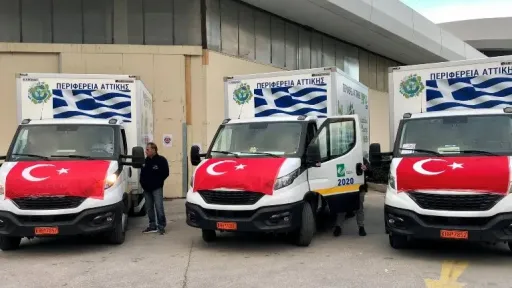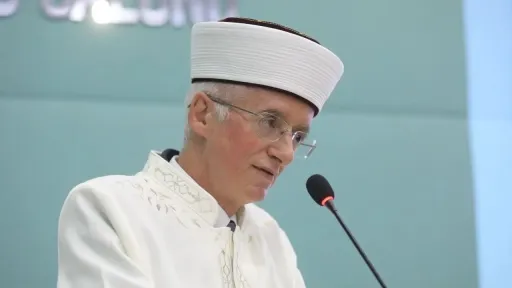A ceremony for the Martyrs’ Remembrance Day in Athens

A commemoration ceremony was held at the Turkish Martyrdom in Piraeus within the scope of the 18 March Martyrs' Remembrance Day and the 109th anniversary of the Çanakkale Naval Victory.
The ceremony, attended by Turkish Ambassador to Athens Çağatay Erciyes, Consul General of Athens Piraeus Mustafa Somuncu, military attachés and members of diplomatic missions, started with a moment of silence in front of the martyrdom monument.
Speaking at the ceremony, Ambassador Erciyes commemorated Mehmet Akif Ersoy, the author of the National Anthem of Türkiye, on the occasion of the 103rd anniversary of the adoption of the National Anthem on 12 March.
Erciyes reminded that Mehmet Akif Ersoy did not accept the prize money given to the person who wrote the National Anthem at that time and said, "That poem is no longer mine. It is the property of the nation." He reminded that he gave it as a gift to the Turkish nation.
Reminding that 41 employees of the Ministry of Foreign Affairs have been martyred in treacherous terrorist attacks since 1973, Erciyes said, "Our National Anthem is the common oath and compass of the Turkish nation, which has established 16 states on the stage of history, has never lived in captivity, and has never lived in captivity, saying 'I have always lived free, I will live free'."
Erciyes emphasised that Turkish diplomacy works for a world where peace and stability prevail and said, "We commemorate with mercy, gratitude and thanksgiving all our martyrs, especially Gazi Mustafa Kemal Atatürk, the founder of our Republic, and his comrades-in-arms, who sacrificed their lives for the defence and protection of our homeland, the stability and future of our nation, and we bow respectfully in front of their cherished memories."
After the speech, white and red carnations were left on the graves in the martyrdom.
Piraeus Turkish Martyrs' Cemetery was established as a Muslim cemetery in 1859 and was given to the Ottoman Empire by the Piraeus Municipality on 24 March 1890. The cemetery gained the identity of martyrdom with the burial of those who were taken to Athens as prisoners during the Balkan, First World and Independence Wars.




